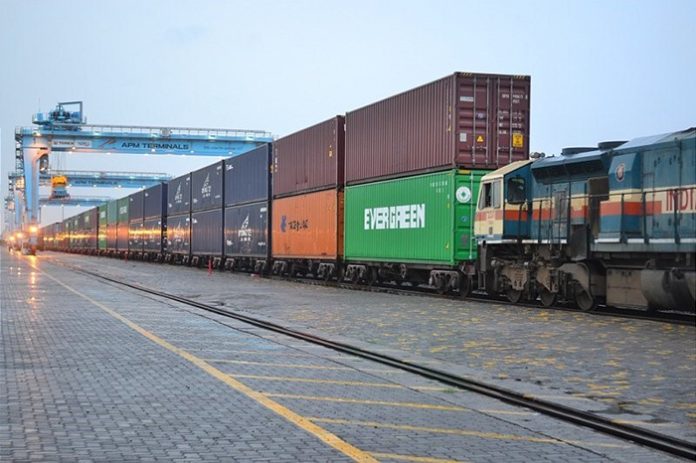Snapshot
Instead of bags of cement or foodgrains loaded into the container, Concor has started the bulk loading of cement and foodgrains.
One container carries 560 bags of cement and Concor has transported 125 containers with bulk loading of cement in the last two months eliminating about 69,000 plastic bags in the process.
With the aim of reducing the pollution and eliminating the use of plastic bags, Concor has started the bulk loading of cement and foodgrains reducing the cost of loading.
Instead of bags of cement or foodgrains loaded into the container, now it is being directly bulk loaded, an improvisation of the loading process for handling the commodities both at the loading point as well at the unloading point, with the help of technology, said a senior Concor official involved with the freight operation.
One container carries 560 bags of cement and Concor has transported 125 containers with bulk loading of cement in the last two months eliminating about 69,000 plastic bags in the process.
Our bulk cement transportation is the most cost effective compared to other modes of transport as the existing customer is incurring as less as Rs 2.90 per ton km in transporting and both sides handling, said the official.
At present, transport of bulk cement in rail mode is limited due to paucity of unloading terminals and also requires specialised railway wagons. Hence, the cement industry is mainly depending on road bulkers to meet the requirement of bulk cement transport.
As the cement demand is expected to reach 419.92 million tons by 2027, Concor is trying to popularise its new handling method for bulk cement transportation which is not only environmentally-friendly but also cost effective and less time consuming.
India being the second largest cement producer in the world with an installed capacity of 545 million tonnes urgently requires a cost-effective solution to transport bulk cement through rail mode.
The bulk transportation method is dust free and the equipment used to unload is not exposed to the environment thereby preventing air pollution. It is an environmentally friendly discharge system made to meet city pollution norms. This method has no wastage in discharge.
Bulk cement handling and transportation system developed by Concor is easy to set up at any chosen unloading point and is capable of meeting different customer requirements.
At the plant, before loading, a flexible liner is opened and fitted into an empty container. The liner is waterproof, once sealed. To minimise bulging during loading, transit or unloading, bulk heads (steel pipes) are fitted.
Liner fitment is now complete and a container is sent for loading which is done in about 10-12 minutes for loading 27 tons of cement. After loading, the container is sealed with One Time Lock (OTL) and it is dispatched to the unloading destination.
According to Concor, a railways subsidiary, in foodgrains also bulk transport both for ITC and FCI has given very good dividends for customers in avoiding the wasteful expenditure in bagging and reducing the pilferage. Concor has transported 270 containers with bulk loaded foodgrains saving time and cost for the customers.
Commercially viable bulk handling solutions have been offered to the trade with the mechanised loading of grains into standard containers at the rate of minimum of 17 tons per hour through specially designed flexi liners and vacuum machines.
In order to augment capacity, Concor has purchased eight specially designed machines which have been deployed at Kota and Punjab for bulk handling of food grains.
Similarly, improvements in handling of steel consignments also have given good dividends for its customers.
Concor, with its fleet of 370 rakes and nearly 37,000 domestic containers, is ready to serve the cement industry in transporting bulk cement in the most economical way.
The company has plans to increase the rakes and containers in the near future to 800 rakes and 2,00,000 containers. With these resources, Concor is confident of serving the bulk cement transport requirements without any shortage in logistics resources.
Container Corporation of India was set up in 1988 with a vision to provide responsive, cost effective, efficient and reliable logistics solutions to its customers through synergy with community partners and ensuring profitability and growth.
Concor now has a network of 61 terminals (Inland Container Depots/Container Freight Stations) in India.


